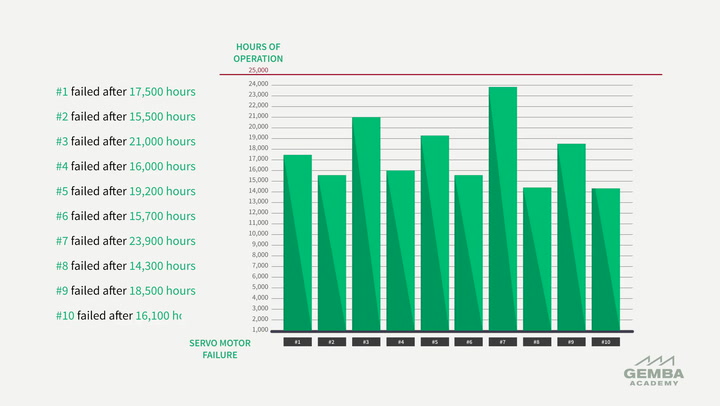
Unlock Over 2,000 Lessons
Subscribe today and join the thousands of worldclass organizations already learning with Gemba Academy.
What Is Failure Rate?
Failure Rate is a key indicator of the health of a specific piece of equipment as well as for a plant maintenance system. The continuous reduction of Failure Rates is a focus of many TPM activities.
Course Videos
Measuring TPM Effectiveness
00:06:31
2What Is OEE?
00:06:41
3Comparing OEE, OPE, and TEEP
00:07:56
4What Is MTBF?
00:04:04
5What Is MTTF?
00:03:47
6What Is MTTR?
00:04:32
Current Video
What Is Failure Rate?
00:03:43
Next VideoWhat Is The Planned Maintenance Cost Ratio?
00:03:45
9What Is Planned Maintenance Percentage?
00:04:15
10What Is a P-F Interval?
00:03:45
11Keys to Reviewing TPM Metrics
00:07:30
You must be logged in to access Gemba Academy resources.